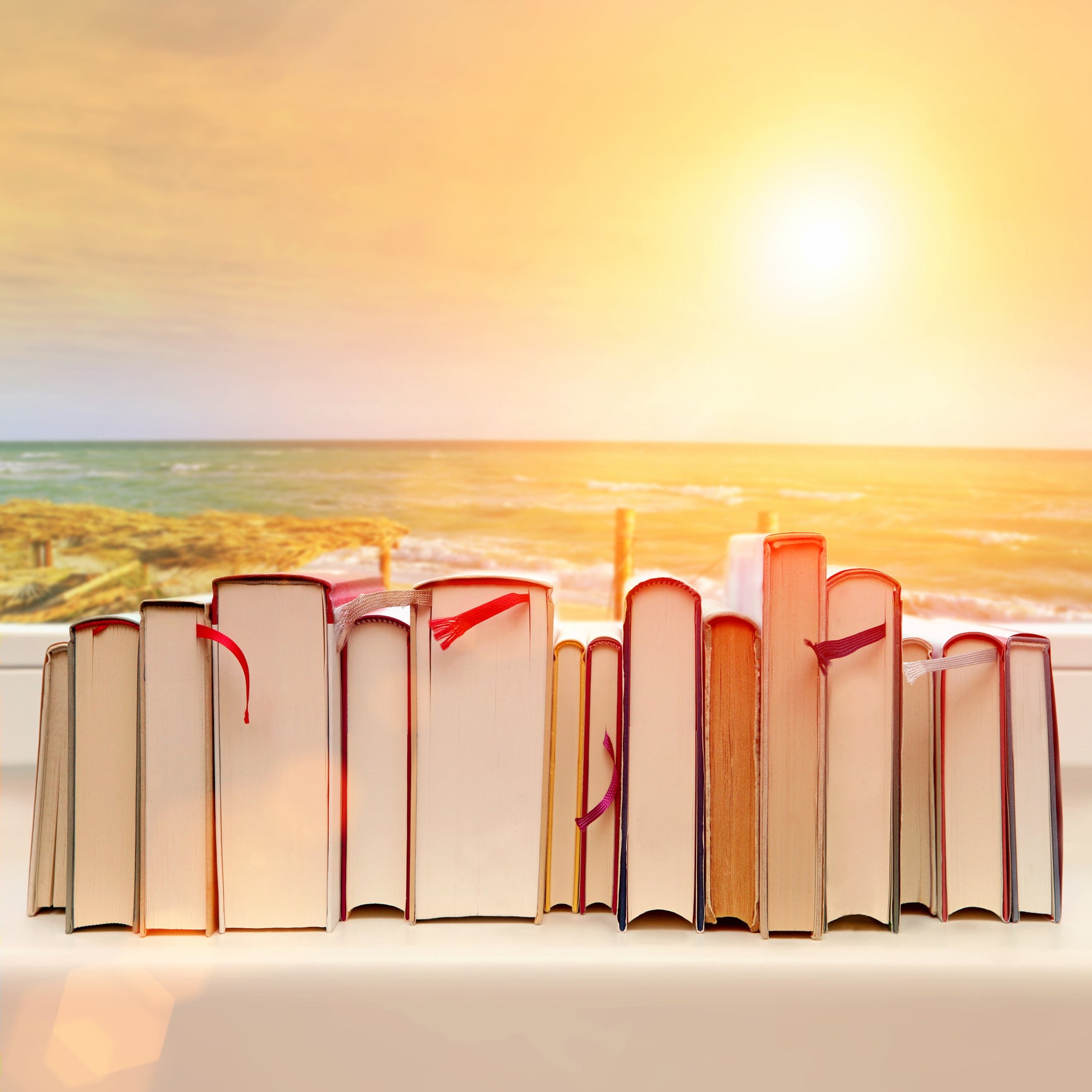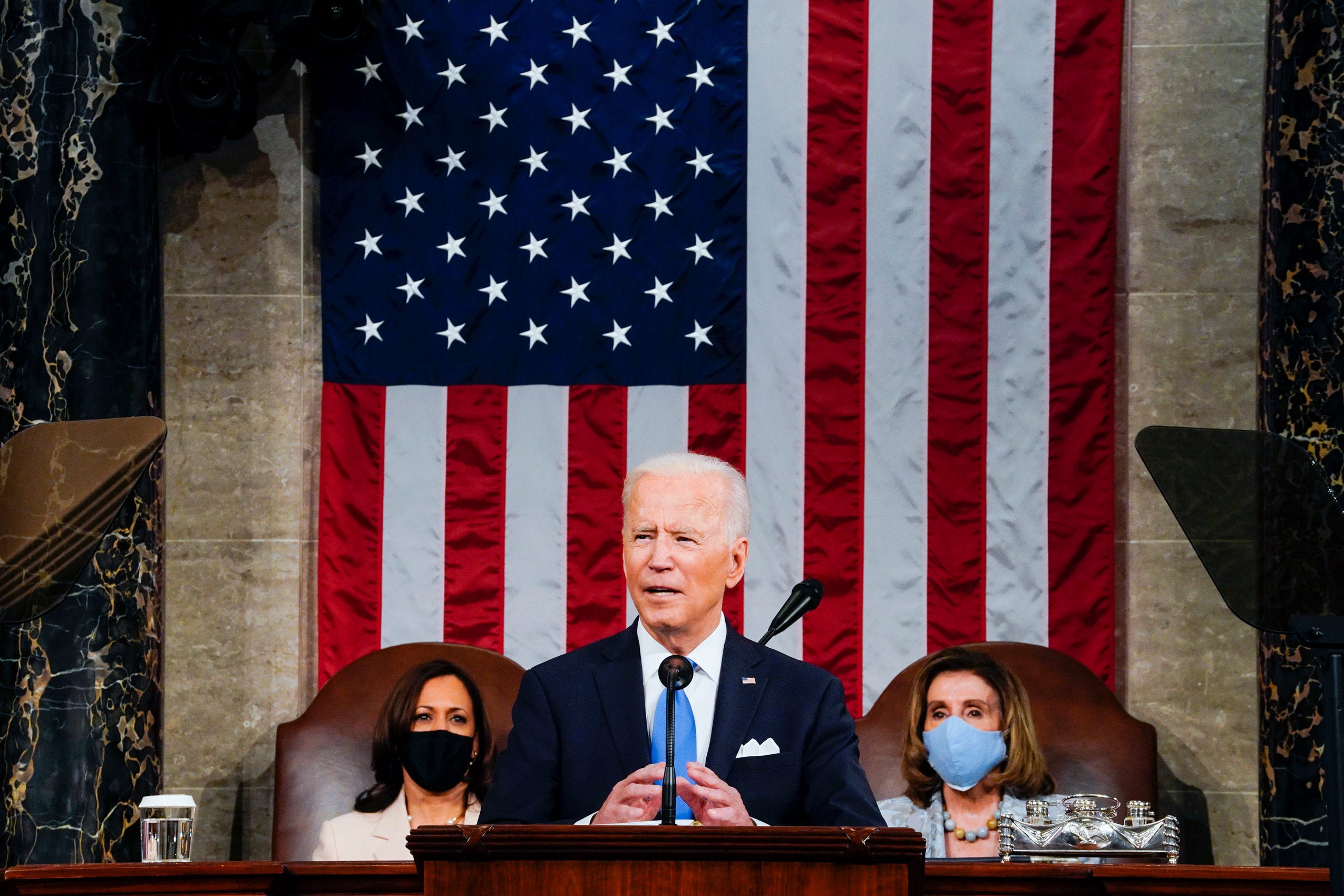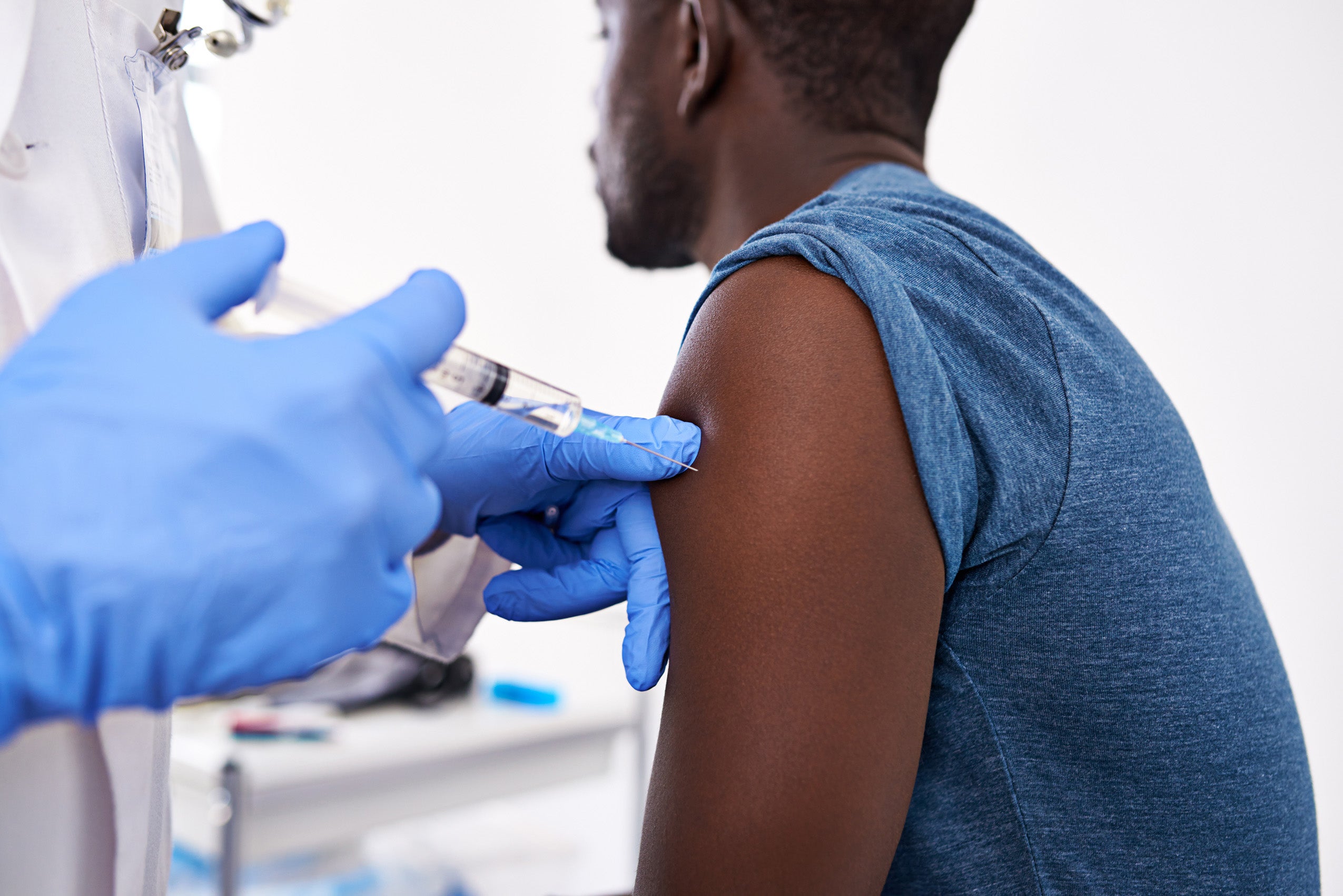People
Glenn Cohen
-
Harvard Law faculty summer 2021 book recommendations
July 1, 2021
Looking for a new book to enjoy at the beach, park, or on your couch? Six HLS faculty members share what they’re reading this summer.
-
For a second year, Harvard Law to offer pre-term ‘Zero-L’ course to other law schools for free
May 25, 2021
Harvard Law School today announced plans to make its online, pre-term course for incoming law students, Zero-L, available to other U.S. law schools for free again for a second year as law schools emerge from the pandemic. Beginning in the summer of 2022, HLS will return to its pre-pandemic plan to offer Zero-L as an educational tool that other law schools can purchase for a reasonable fee to share with their students... “We created Zero-L several years ago to help incoming Harvard Law students from all backgrounds gain a common baseline of knowledge as they begin their law school careers,” said Harvard Law School Dean John F. Manning ’85. “As the first in my family to graduate from college and the first to go to law school, I often had the feeling that everyone around me just got law school as soon as they walked through the door, and that I didn’t. Zero-L aims to help all new students feel prepared to succeed on day one.” Zero-L’s faculty director, Professor I. Glenn Cohen ’03, recalled his experience as a new law student similarly. “Like many law students, I found the first few months of law school daunting,” Cohen explained last May. “We built this program to substitute a ‘smooth on-ramp’ for the ‘steep climb’ I and many others encountered upon starting law school.”
-
As the Centers for Disease Control and Prevention continues to relax safety measures for people who are fully vaccinated against the coronavirus and the country begins to reopen, many employers, businesses, families and friend groups are finding themselves in the at-times uncomfortable position of having to ask about others’ vaccination statuses. Some Americans, including Rep. Marjorie Taylor Greene (R-Ga.), are balking at such questions and are claiming that asking about or requiring proof of vaccination is a violation of the HIPAA federal privacy law...HIPAA has become one of the “most misunderstood statutes in existence,” said Glenn Cohen, a Harvard Law School professor who is an expert on health law and bioethics. “People think it does a lot more than it’s actually doing.” ... Employers are also legally allowed to ask about or require proof of vaccination from employees. In a December guidance, the Equal Employment Opportunity Commission, which enforces federal workplace anti-discrimination laws, essentially confirmed that “there’s no indication that there’s any federal law that would be violated by the employer asking this question,” Cohen said.
-
Can your employer require a vaccine? The short answer is yes. As we continue to push toward a new normal, many employers are weighing whether or not to require employees to receive a COVID-19 vaccine in order to return to work. This week Delta Airlines became the largest U.S. company to announce all new employees must be vaccinated. Producers of the Broadway hit Hamilton have also mandated cast and crew be vaccinated. What rights or recourse do employees have? If your company requires it, there’s not much you can do about it—with a few exceptions. “Employers can demand proof of vaccination,” said Harvard Law Professor Glenn Cohen. “You, as an employer, can set conditions for work.” Cohen is an expert on health law and bioethics. He says that while many employees believe HIPAA laws may protect them from having to provide proof of vaccination, that’s just not the case. “HIPAA is largely irrelevant [in this case],” Cohen said. “Most of these employers are not going to be covered entities under the statutes, so they’re not even covered.” Cohen says HIPAA only applies in health care settings. “Health information generated in an encounter with a physician [would be covered by HIPAA],” he said. “That’s not what a vaccination card is.”
-
For a second year, Harvard Law to offer pre-term ‘Zero-L’ course to other law schools for free
May 20, 2021
Harvard Law School today announced plans to make its online, pre-term course for incoming law students, Zero-L, available to other U.S. law schools for free again for a second year as law schools emerge from the pandemic.
-
The Centers for Disease Control and Prevention (CDC) on May 13 updated its guidance regarding mask-wearing for people who are fully vaccinated against COVID-19...The question: Is a business asking a customer about their vaccination status a violation of HIPAA? No, most businesses would not violate HIPAA by asking about a customer’s vaccination status...HHS says protected health information under HIPAA includes information that relates to a person’s past, present or future physical or mental health or condition. HHS has a list of what information is protected on its website. While HIPAA rules apply to covered entities and specific business associates, the rules don’t extend to most businesses, according to Glenn Cohen, a professor at Harvard Law School. “Because the average business is not a covered entity or a business associate of a covered entity within the meaning of HIPAA, the statute does not prohibit them asking them about vaccination status,” Cohen said in an email to the VERIFY team.
-
A startup called Orchid is offering a spit test that tells a couple the odds that their children will grow up to have certain conditions...It’s sending the message that people affected by these diseases are not desired by society, says Glenn Cohen, a professor at Harvard Law School who specialises in bioethics. “What the company is really saying is, we're going to help determine if your child has schizophrenia, and then we’re going to affirm your view that having a child who has some risk of schizophrenia is not a child you want to have, and we're going to empower you to replace it with a child you prefer.” Cohen refers to this as “liberal eugenics” – the idea that individuals are empowered to voluntarily choose what kind of children they want to have. “If you're really concerned about what the life of a person with schizophrenia looks like in America or the UK, the solution is not to empower more parents to avoid children with schizophrenia – the solution ought to be to find ways to improve the lives of people with schizophrenia,” Cohen says. “I would love to hear what kind of work the company is doing to contextualise these polygenic risk scores in a way that actually helps people understand the disorders in question, rather than merely says, here's your number – good luck.” Siddiqui and Orchid failed to respond to multiple requests for an interview or comment. The company does have a number of blog posts on its website that feature the perspective of people whose loved ones suffered from some of these conditions.
-
Pfizer and partner BioNTech have asked the Food and Drug Administration for full approval for their COVID-19 vaccine, a regulatory benchmark beyond the current emergency use authorization granted during the pandemic. Moderna and Johnson + Johnson are expected to submit similar requests before too long. Many are eager for COVID-19 vaccines to advance to full-approval status as they believe this will reassure those who are vaccine hesitant while also helping employers and universities to enforce vaccine mandates...Courts around the United States are reviewing challenges to these vaccine mandates on the grounds that they're authorized, not fully approved. A full approval, however, could effectively end those legal challenges, many of which, legal scholars have said, were dubious to begin with. "I don't think it makes a difference legally, as to mandates, whether the vaccine is EUA or BLA," I. Glenn Cohen, a professor and deputy dean at Harvard Law school, told ABC News, referring to a Biologics License Application. "I do think for many employers and universities it will make them much more comfortable with mandating vaccination, subject to disability and perhaps religious exemption."
-
Members of the World Trade Organization are scheduled to meet Friday to discuss a proposal by India and South Africa to temporarily suspend patents on COVID-19 vaccines. Backers of the plan say it would increase the supply of vaccines around the world by allowing more countries to produce them. There’s now enough supply in the U.S that any adult who wants a shot should be able to get one soon...I. Glenn Cohen at Harvard Law School said the U.S. government had some leverage when it was making deals with drug companies as part of Operation Warp Speed. “One could have imagined a version of this where, as part of a condition of receiving the funding, there was more done to ensure access for less developed countries and sharing of technology and sharing of intellectual property,” Cohen said. More than 100 countries have backed the proposal to temporarily waive COVID-19 vaccine patents. The U.S isn’t one of them, but the White House has said it’s considering the idea.
-
Florida colleges likely to face uphill battle with COVID-19 vaccine mandates, says legal expert
April 30, 2021
No vaccination, no class: That’s the message being sent to some Tampa Bay college students. A growing number of colleges and universities, more than 100 nationwide, say a COVID-19 vaccine will be mandatory this fall, according to a list maintained by The Chronicle for Higher Education...But is this legal? More than 115 years ago, the Supreme Court held that states can compel vaccinations. “The 1905 decision in Jacobson versus Massachusetts recognizes that states have significant powers under the Constitution,” said Professor I. Glenn Cohen, a Harvard Law professor and leading expert on medical ethics. “A state can definitely introduce a vaccination mandate should they so decide to do.” We know colleges require proof of vaccines for measles, mumps, and meningitis but the coronavirus is a bit different. The COVID-19 vaccines only have Emergency Use Authorization rather than the standard, full U.S. Food and Drug Administration approval. Some legal experts believe the shots, approved only for emergency use, can’t be mandated. Professor Cohen disagrees. “The statute is intended to tell people that they have a choice whether to get vaccinated or not but really has no meaning as to whether a private employer or a private university can require you to be vaccinated,” Cohen said. “It’s your choice, but if you choose not to be vaccinated, this is one of the consequences.”
-
Evaluating President Biden’s first 100 days
April 28, 2021
As President Joe Biden approached his 100th day in office, Harvard Law Today asked faculty members and researchers from across Harvard Law School to weigh in on the new administration’s agenda, actions, accomplishments, and failures to date.
-
I. Glenn Cohen ’03 and Carmel Shachar J.D./M.P.H. ’10 of the Petrie-Flom Center for Health Law Policy, Biotechnology, and Bioethics discuss the Biden administration's healthcare agenda.
-
Travelers are crossing borders for vaccines. Is that okay?
April 27, 2021
Enno Lenze, a German entrepreneur, journalist, and museum director, had what felt like another job looking for a vaccination, a hunt he had been on since December...Finally, an option came through. World Visitor, a Norwegian travel agency, offered a package that included flying to Moscow to get Sputnik V, the Russian vaccine. Lenze and 50 other Germans jumped at the chance and traveled there earlier this month for their first jabs...Traveling for treatments with either limited availability or cheaper options than ones’ home country is not new according to I. Glenn Cohen, a professor at Harvard Law School and director of the Petrie-Flom Center for Health Law Policy, Biotechnology, and Bioethics. A thriving medical tourism market has existed for years. In the case of COVID-19 vaccines, as long as at-risk groups have first been protected, countries with surplus vaccines could use them to jumpstart travel, if it is done carefully. “What matters is where the net benefit goes,” he says. “It should benefit the poorest in the community and not just the rich.” While two-dose vaccinations might tempt countries to keep visitors for longer, since it takes time to build an immune response, most post-jab tourism activities should not be rushed. “I’d be a little concerned,” he says. “I hope these people aren’t going to markets and bazaars right away.”
-
How Colleges Are Approaching Student Covid-19 Vaccinations
April 16, 2021
About a dozen colleges have said they will require students to receive a Covid-19 vaccine before returning for in-person instruction this fall. The mandate from this small but growing number of schools inserts them into the increasingly politically charged debate over whether businesses and other institutions should be able to make inoculation a condition of participating in events in person. Here’s what we know about colleges and student Covid-19 vaccinations. ... Glenn Cohen, a professor at Harvard Law School, said some schools are likely getting tripped up by legal language requiring the federal government to inform people they have the right to refuse a vaccine approved under an emergency-use authorization. The three vaccines that have been approved by the Food and Drug Administration—manufactured by Pfizer Inc., Moderna Inc. and Johnson & Johnson — were only approved for emergency use.
-
More Colleges to Require Student Covid-19 Vaccinations
April 15, 2021
A small but growing number of colleges will require students to receive a Covid-19 vaccine, saying it is the most assured way of returning to some semblance of pre-pandemic campus life. ... Glenn Cohen, a professor at Harvard Law School, said schools are likely getting tripped up by legal language requiring the federal government to inform people they have the right to refuse a vaccine approved under an emergency-use authorization.
-
Vaccine tourism: Why are people crossing borders for a jab?
April 14, 2021
One Saturday morning in late March, Milicia Praca and her roommate grabbed their passports and a bag of crisps and drove towards the border between Bosnia and Herzegovina (BiH) and the Republic of Serbia. They were keen to accomplish an important task – enter Serbia, pull up their sleeves, and get vaccinated against COVID-19... “In Europe, for a person to literally drive to another country, get a vaccine and return home or to their place of residency, strikes me as unethical tourism,” said Glenn Cohen, a professor at Harvard Law School, who has specialised in health law policy, biotechnology and bioethics. “It increases the risk of the spread of COVID-19 and you may be taking a vaccine from someone who is entitled to it under that country’s law. People are putting themselves and others at risk as vaccine tourists,” he said...Most European countries require people to show proof of residency, citizenship or share details about their national health insurance, to get vaccinated. Professor Cohen believes these legal requirements may discourage vulnerable communities, such as undocumented migrants, from trying to get a jab. “To tackle the pandemic, everybody should be eligible to get the vaccine in the region they live in,” he said.
-
US colleges divided over requiring student vaccinations
April 12, 2021
U.S. colleges hoping for a return to normalcy next fall are weighing how far they should go in urging students to get the COVID-19 vaccine, including whether they should — or legally can — require it. Universities including Rutgers, Brown, Cornell and Northeastern recently told students they must get vaccinated before returning to campus next fall. They hope to achieve herd immunity on campus, which they say would allow them to loosen spacing restrictions in classrooms and dorms...Harvard Law professor Glenn Cohen, who teaches health law and bioethics, said there's no legal reason colleges wouldn't be allowed to require COVID-19 vaccinations. It makes no difference that the shots haven't been given full approval, he said, noting that many colleges already require students to take coronavirus tests that are approved under the same FDA emergency authorization. But there’s also no federal guidance explicitly permitting vaccination mandates. The biggest clashes could come in states taking a stance against vaccination requirements, he said.
-
‘Authorization’ status is a red herring when it comes to mandating Covid-19 vaccination
April 5, 2021
An op-ed by Dorit R. Reiss, I. Glenn Cohen, and Carmel Shachar: Covid-19 vaccines offer a way out of the global crisis that has upended — and cut short — lives for more than a year. Three vaccines have now received emergency use authorization (EUA) from the FDA. One question that employers and universities must rapidly consider and act upon is whether to mandate that returning employees and students be vaccinated. Some employers are starting to require Covid-19 vaccines, and Rutgers University became the first university to mandate them for students and employees. One argument against mandates is that individuals cannot be required to get a vaccine that is being distributed under an EUA, as opposed to a full license, an argument made in a recent First Opinion. That would potentially delay Covid-19 vaccine mandates until the FDA approved the first vaccine under a biologics license application (BLA) — and so far the timing of that is unknown. Important nuances lead us to a very different conclusion: There are few to no legal barriers to employers or schools requiring vaccines being distributed under EUAs.
-
Time for U.S. to share more COVID vaccines?
March 23, 2021
Oxford University and AstraZeneca announced Monday that their COVID-19 vaccine is 79% effective overall and 100% effective at preventing severe disease, according to preliminary results from U.S. clinical trials. The Biden administration said last week that it will send about 4 million doses of the vaccine to Canada and Mexico, but it’s holding on to several million more, even though the AstraZeneca vaccine is not yet authorized in the U.S. and the administration has already secured more than enough doses of COVID vaccine for everyone in the country... “In a world where COVID is running rampant across the world and not in the United States, unless we’re going to be a fortress nation that’s not going to let anybody travel here ever, you’re going to have variants emerge elsewhere in the world, in such a way that they pose a danger to the United States,” said Glenn Cohen, a professor of health law and bioethics at Harvard Law School. Both healthwise and economically. “If we’re living in a world where large parts of the world don’t get fully vaccinated until 2022 or 2023, those are people who can’t travel to our shores. There are people who will not be able to consume our goods. There are people who will be in situations of political instability and suffering, and there’s going to be major economic loss,” Cohen said.
-
‘We are on a collision course’: As virtual care booms, experts call for new health data privacy protections
March 9, 2021
A drop in your daily step count. A missed period. A loss of hearing. If it’s collected by a smartwatch or wearable, that health data isn’t protected the same way your medical records are. And as wearables like smartwatches and headphones sweep up an increasing amount of health data — flagging potential medical issues that could be used for ad targeting or to discriminate against someone — some lawmakers and researchers are calling for a reconsideration of the current approach. In a sign of the increasing urgency of the problem during the current virtual care boom, U.S. senators last month reintroduced a bill that would make it illegal for companies like Apple, Amazon, or Google to sell or share the data collected by wearables...Legal experts consider the move a step in the right direction, but caution that further action is needed to address the vast amounts of information being absorbed by health tech startups and technology giants alike. “We are on a collision course with how to regulate health data as all the different types of wearables and health tech explode,” said Carmel Shachar, executive director of the Petrie-Flom Center for Health Law Policy, Biotechnology, and Bioethics at Harvard. “HIPAA doesn’t extend to the world of health tech, and it should,” she added...Harvard law professor Glenn Cohen likens the situation to an iceberg, where the tip represents the data covered by HIPAA and the rest represents all the information that is not shielded by the law. Today, there is nothing stopping an employer or insurer from using that unprotected data to price its products or deny someone a job. “I like to remind people that the ‘P’ in HIPAA isn’t privacy,” Cohen said. “The law made sense when we were talking about health care information, not health information” more broadly.
-
Going remote
March 3, 2021
Ten Harvard Law School faculty share a behind-the-scenes look at their Zoom studios and the innovative approaches they employed to connect with students.




